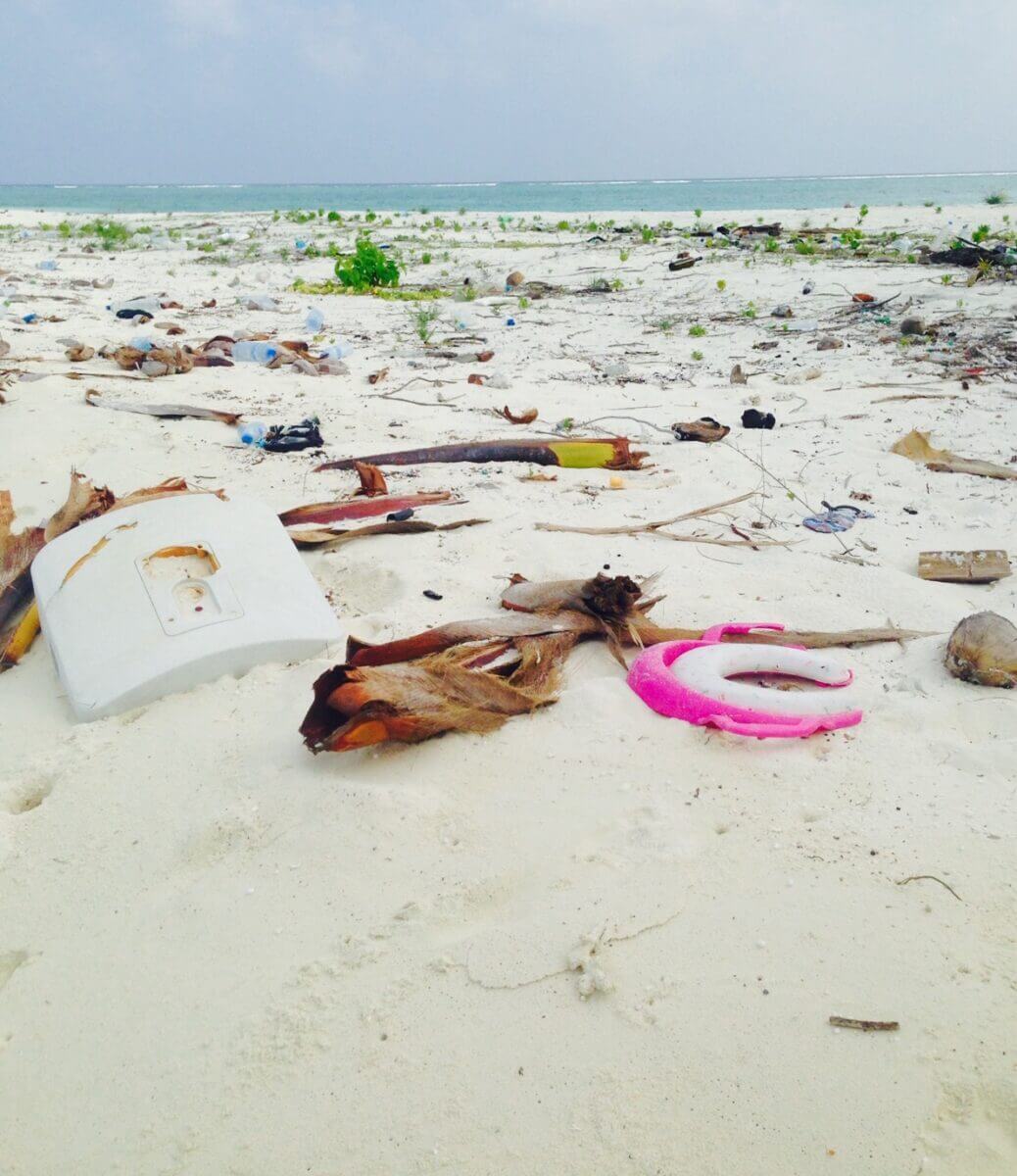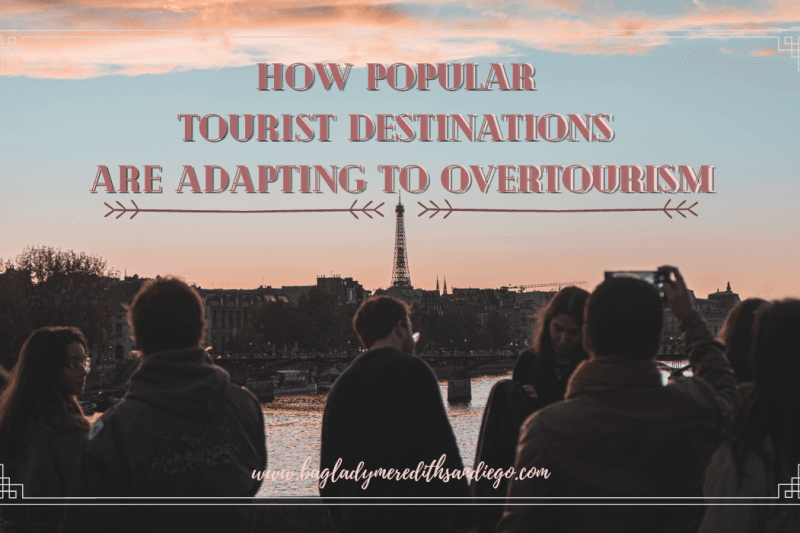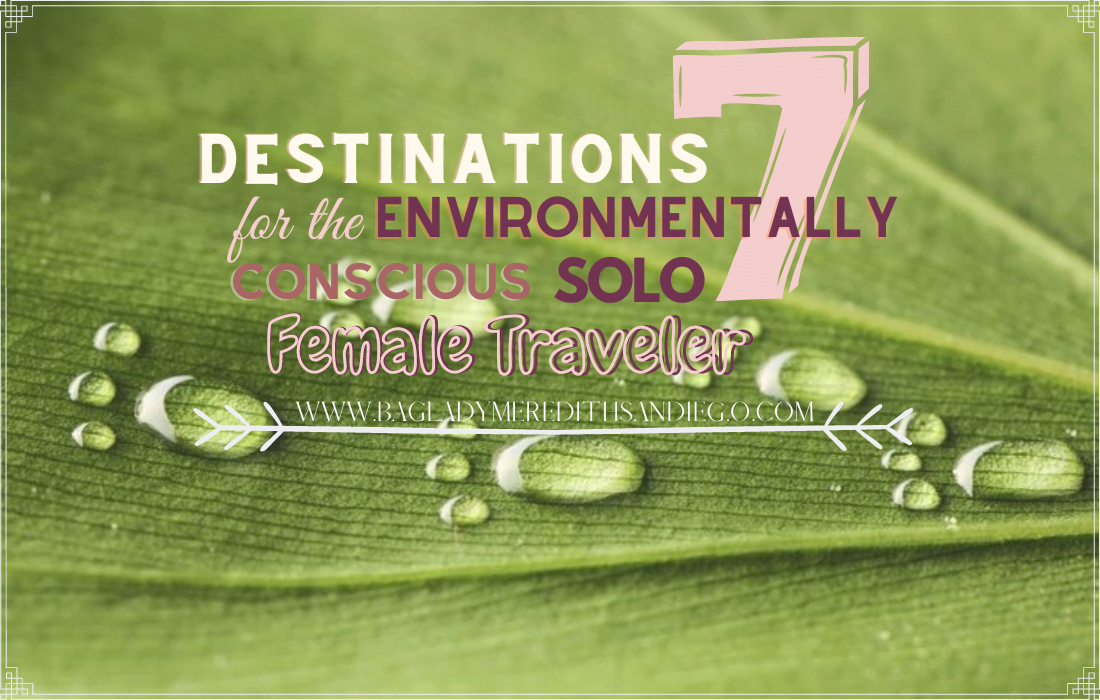In the wake of Coronavirus, terms like Eco-friendly, sustainability, and responsibility have become commonplace. As has the discussions of how best to enjoy travel once the ability to do so re-emerges. With climate change serving as a catalyst for global improvements, many are seeking the truth about sustainable travel options and how to get involved in or support Eco-friendly projects in tourism.
The truth is that if tourism, as an industry, continues in the direction that it is, it will vanish entirely.
So what does it mean to travel sustainably? By definition, sustainable travel is the concept of responsibly visiting a destination as a tourist. This is done by making a positive impact on the community, environment, and economy visited.
Sustainable travel is important because it combats the bigger issue of over-tourism. This is an excessive number of tourist visiting a popular destination or attraction. Tourists in large quantities can damage the local environment, and historical sites closing them forever.
What is the truth about sustainable travel?
This is the truth about sustainable travel and why I’m an advocate for the movement.
Travel story: I’m standing on the plastic-covered beaches and atolls in the Maldives,. I’m watching hundreds of pieces of plastic waste wash up at my feet after spending two hours filling bags full for proper disposal.

Fast forward in time and I’m standing on a pier in Sihanoukville, Cambodia. I’m watching children splash and play on and around a heap of rubbish dumped at the port. Or starring out of a bus window in Kuala Lumpur not realizing that a river bed was one because it was covered in trash so compacted over time that people could walk on it.
These are the images that moved me to adapt sustainable travel (and living) methods into my own life.
Some ugly truths about tourism
There are the obvious things like massive amounts of waste, or carbon emissions created by travel industry. But there’s a lot more to it than many tourists know. Some by choice, others by default aka ignorance/lack of awareness. Either way, these ugly truths exist.
While visiting the island of Palawan in the Philippines in 2018, locals shared with me the hardships and realities of working in the tourism industry. Over Jollibee fried chicken and white rice, washing down the bitterness of life with Red Horse I bonded with these people.
The most memorable takeaways, were the stories of how local food stalls struggle because luxury hotels and big business chains get first dibs on both local and imported goods. And those involving modern-day forms of slavery playing out in plain sight in the fishing and entertainment industries throughout Asia. I recall having to navigate around the recent closure of Boracay island, which was done in order to rehabilitate the waters and the shores from all of the pollution it had endured over recent years.
Local life is different in the places we visit as tourists.
Still, tourism is the key to unlocking the hidden potential in certain communities around the world. And in some places, tourism boosts the economies that it touches. Think of all the fuss around events and festivals which bring in heaps of tourists aka money. But spending luxury means that very little of the money actually makes its way to local markets. This is known as “tourism leakage”.
So is luxury tourism bad?
I don’t mean to insinuate that every trip has to be camping or “rough-necking”, but would that really be so bad? I am saying that as a consumer you have control over where your money goes. Why not help the community you visit and snap a gazillion photos of vs unintentionally hurting it by “treating yourself”.
Still, I understand and empathize with the fact that everybody travels differently. The truth about sustainable travel and how to get involved can be a heavy topic. And after all, there are plenty of excuses to hide behind.
For some, leaning on the existing myths about traveling sustainably justifies their desire to “level up” when they travel. That is to say, that luxury vacations are often chosen over those that would have a sustainable impact.
Two main myths about sustainable travel are:
- It’s too pricey and complicated to travel sustainably. This is a common misconception about traveling responsibly. A suggested solution is to consider overland travel; traveling by bus or train. Also electing to stay in home stays with local families, or trekking tours both of which can reduce your travel carbon footprint.
- Flying isn’t a responsible means of travel. Yes, it’s true that aviation is heavily responsible for the high levels of harmful gases, but consider the millions of jobs that airports support. Consider further the foreign economies which depend heavily on the income tourism brings that require a plane to reach.
Now that we’ve cleared the air on that, let’s get to the meat (or tofu) and potatoes of how you can implement a few changes. And before you know it, you’ll be traveling sustainably, too.
How you can get involved
To start, always leave space for necessary Eco-friendly items like water tumblers, solar battery packs, and reusable canvas bags. Avoid a privileged mentality to travel and instead, travel responsibly with the following bits of advice:
- Pack lightly and attempt to bring only what is truly necessary.
- Digitize important documents vs printing them out.
- Be kind and considerate of other cultures.
- Get involved by getting educated and asking the right questions.
- Focus on high-value, low-impact destinations like Sub-Saharan Africa, South or Central America, and Southeast Asia. Each of these enticing destinations offers adventurers sustainable options such as trekking, eco-lodges, and even tiny house communes.
- Ditch air travel and travel overland when possible. This option works best if you have time to accommodate it.
- Do not engage in animal tourism. Periodt! Doing so directly supports an industry that illegally captures and abuses millions of animals every single year. Unless you can verify the organization is 100% ethical in its treatment of the animals residing there you should opt out.
- Don’t overuse electricity and water in accommodations. Be mindful and turn off all electricity when not in the room. Especially air conditioning units and remember to unplug cellphone chargers from the wall when not in use.

Additional sustainable traveling tips
Hungry for a few more sustainable traveling tips and tricks, try these three:
- Don’t demand assistance in English. Despite it becoming the universal language of tourism, it is not widely known around the world.
- Skip wearing the booty shorts in a mosque, your Instagram followers will forgive you I promise. Instead, embrace that you chose to visit another country and respect the cultural norms as much as possible.
- When planning trips, consider using third-party booking systems that give back. Hotels That Help is a perfect example. This organization has partnered with Booking.com allowing a donation of 10% on reservations made directly via their website to fight homelessness in the U.K.
- Lastly, choose to walk or bicycle while exploring a new town/city if the option is available. You don’t need to Uber everywhere, you know. Or if you must take a car, try to carpool.
Now, you have been properly exposed to the truth about sustainable travel, and how you can get involved. Incorporating these sustainable travel methods into any vacation is easy to do and easy not to do. As is life.
Applied knowledge is power, however. With the awareness gained from reading about the truth of sustainable travel, the opportunity to enjoy traveling without a huge carbon footprint has also been exposed.
Now is the time to change the way your vacation impacts the globe.










